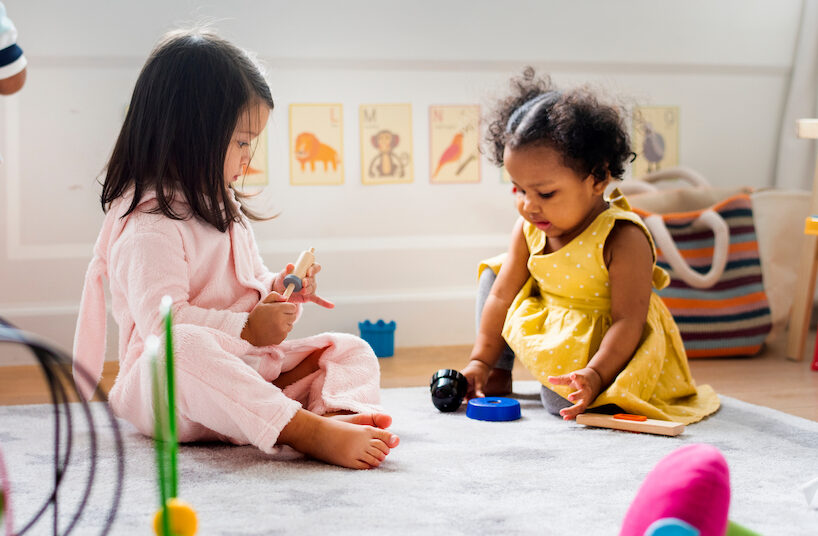
We, as parents, educators, and adults in general, talk a lot about stress and how it affects children. We talk about how to help children cope with it, how to relieve it, and how to make it go away. What we also need to talk about is what it is and what causes stress in the first place. Knowing what the beast is makes it easier to fight.
What is Stress?
Stress is our body’s response to fear, excitement, being overworked, over-stimulated, or threatened.
Small amounts of stress are not actually harmful. They keep us motivated and in control. Small amounts of stress gets us out of bed on time, while larger amounts of stress may keep us up at night. When large amounts of stress become unmanageable, the lack of control we feel can cause even more stress.
Now, everyone’s experience of stress is different. What may be easy to manage for one person may be difficult to manage for another. Remembering this fact is important when thinking about how children experience stress.
Young children experience stress differently than adults because they’re still learning about the world everyday. While an adult may be used to rushing to get ready in the morning, a child may feel overwhelmed by the situation. It’s important to be patient when a child feels like they have lost control, recognize their stress, and teach them how to manage it.
There are two forms of stress your child (or even you) can experience. These types of stress are categorized into everyday stress and chronic stress.
Everyday Stress
Children experience everyday stress by feeling a loss of control in their daily activities. Causes can range from wanting something they can’t have, breaking a toy, unpredictable changes to their routine, frequent changes to their routine, having to wait, feeling rushed, new situations, difficulties with friendships and many more.
These are normal experiences that seem harder for a toddler experiencing them for the first time. As adults, we have to slowly expose children to changes like these with some guidance to teach them how to cope.
Chronic Stress
Chronic or long-term stress is caused by difficult experiences that can affect people for a long time. This type of stress can be caused by frequent moves, serious illness in the family, being bullied over time, family conflict, or the loss of a loved one.
Chronic stress may require more help than just exposing a child to the situation. Many situations that cause chronic stress in children also cause stress in adults. Communicating to children about how you are both feeling is the best way to help them manage their stress. Ensure that children know they are not to blame for circumstances out of their control. Often, even just frequently showing how much you care can help.
If your child is experiencing chronic stress and is having trouble coping, sometimes the best choice for them is to see a professional.
Stress vs. Anxiety
While stress is the response to one or more external events, anxiety is the fear of everyday situations that are not objectively dangerous. Anxiety can become a problem when it starts to interfere with a child’s life as it can cause them to experience more stress.
How to Help
Help your child through stress and anxiety by communicating. Connect with them and build a relationship so you can figure out what is bothering them before it becomes a deep-seeded issue. This will also let the preschooler trust you so when they experience stress they know they have someone to talk to about it.
Guidance through stressful situations can be as simple as explaining to a child why they cannot have the toy they really want or letting them know in advance when their routine is going to be different. When a child feels more in control, they tend to feel less stressed.
When your child is upset, comfort them! When you comfort your child, they can learn to comfort themselves because they learn what helps them feel better.
Another part of managing stress is balancing it with fun, positive lifestyle choices. Play, exercise, and nutrition lead the way for stress-free habits in the future. At Childventures, we do yoga exercises to help keep children active while also ensuring they receive the proper nutrients through our nutrition program.
If your child is experiencing chronic stress, it’s important to consider seeing a professional.
At Childventures, we know to keep an eye on anxiety and stress in children. Not only do our teachers know how to help children transition between activities with ease, they’ll also provide you with a detailed report of your child’s day. That way, you can know if your child is ever feeling overwhelmed, anxious, or stressed.
We also know parents can feel anxious or stressed about leaving their children for the first time. That’s why we provide you with secure, password-protected webcam access to your child’s classroom so that you can take a peek at their learning in real-time.


